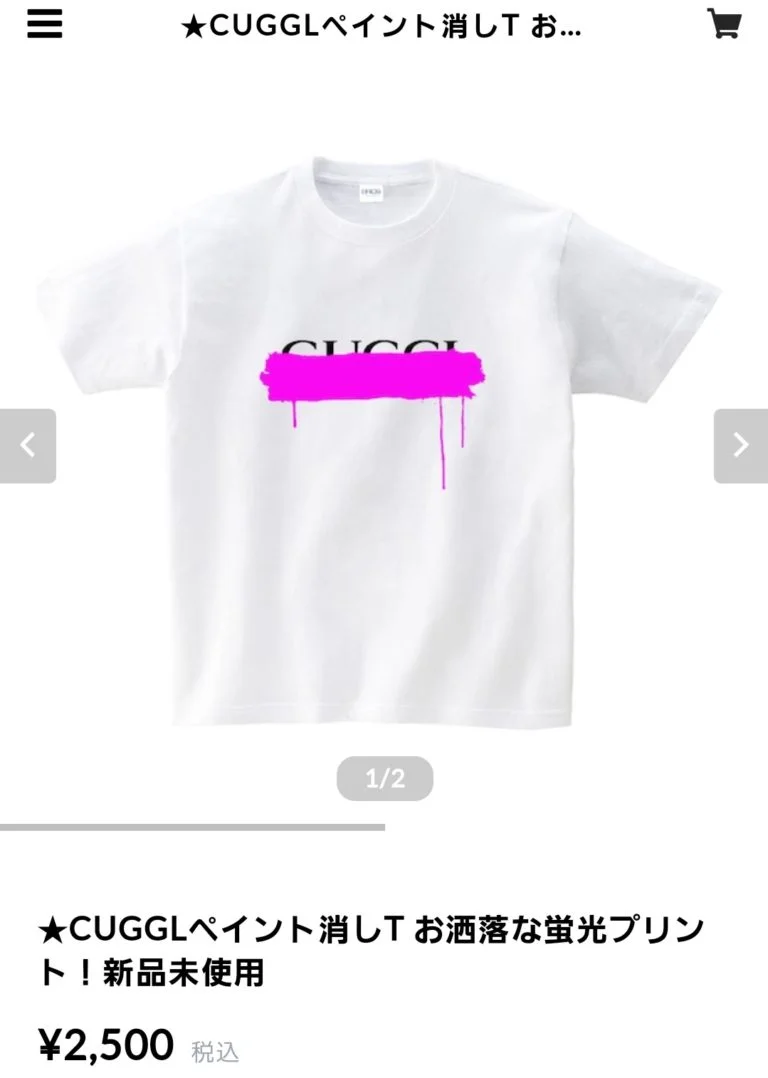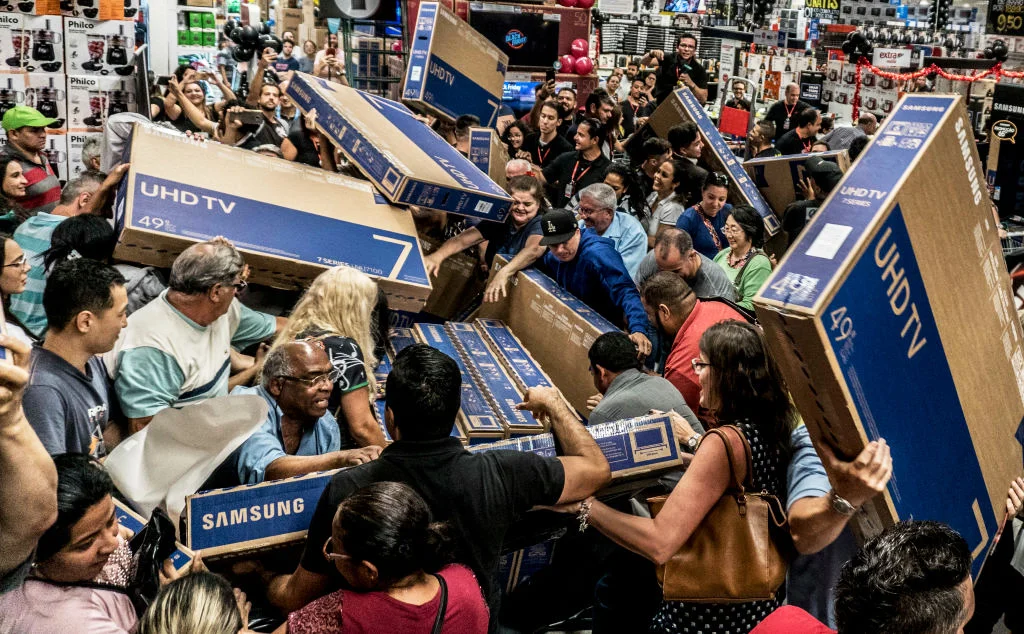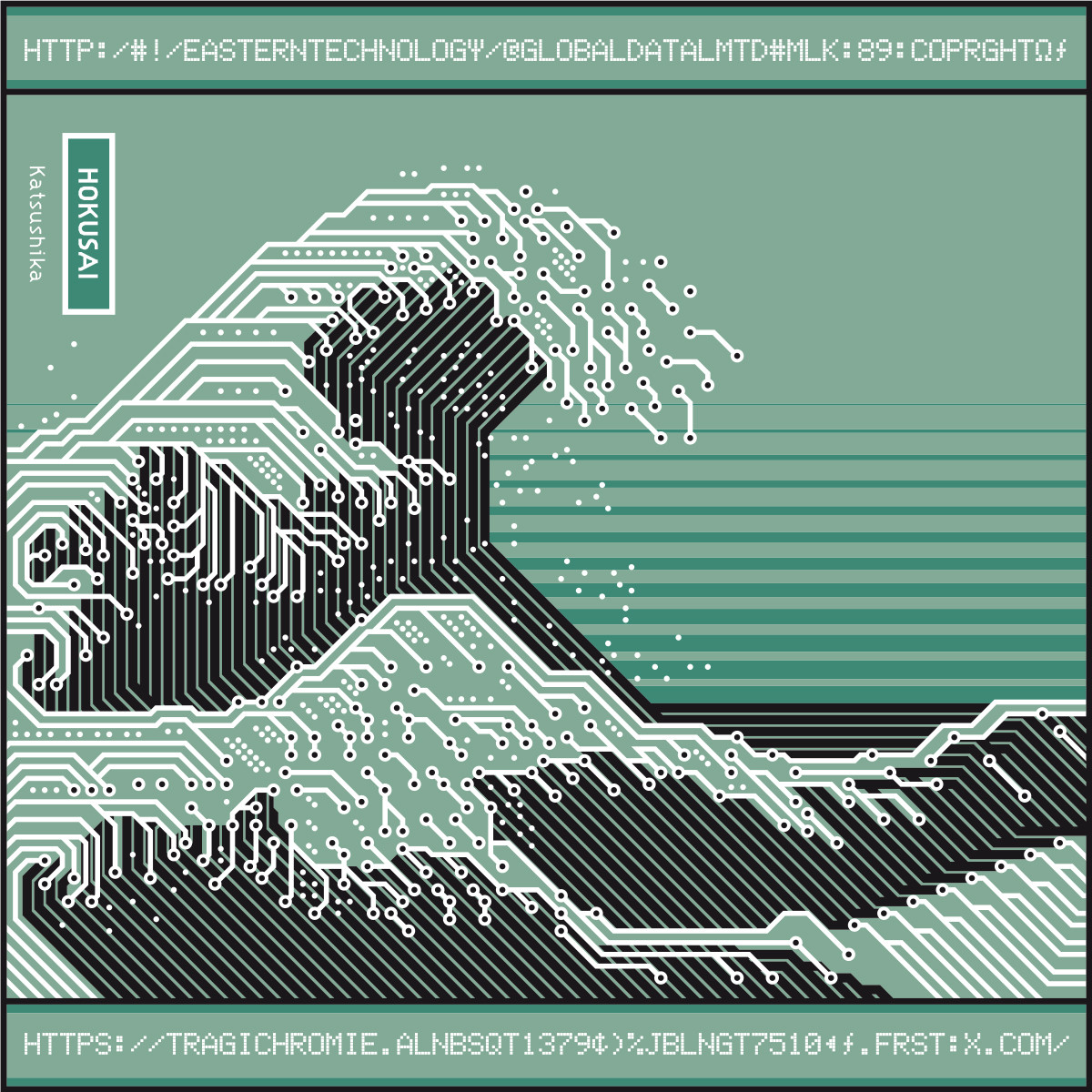At the end of 2021, Nobuaki Kurokawa company (based in Osaka, specializing in the production of products that imitate famous brands) has successfully registered the trademark “Cuggl” in Japan. As the result, Gucci filed a lawsuit against this trademark with surprising result.
In 2021, designer Nobuaki Kurokawa was granted protection for a brand called CUGGL, whose product is clothing. However, when that product was released to the public, this designer had an interesting design change…

The shirt’s branding is half hidden, creating an image similar to the famous trademark GUCCI
Famous for being a fashion house that protects the brand very carefully, GuccI has filed an objection to the “”Cuggl” trademark. In its lawsuit, Gucci claims that the design was made with malicious intent in order to unfairly promote the reputation of the “Cuggl” brand and make the text recognizable as the Gucci trademark.

The reference mark of the Gucci brand
Mr. Kurokawa said that Cuggl is pronounced “kyuguru” in Japanese, not the only brand with an element of ridicule, so it can be seen as a humorous parody.

This isn’t the designer’s first mark with parody element.
In this lawsuit, the Japanese Patent Office (JPO) concluded that Gucci and Guggl are two completely different trademarks, and rejected Gucci’s claims of trademark infringement.

The Financial Times reported that the Japanese Patent Office commented that consumers are much more observant than big brands think they are capable off. In addition, this mark not merely a parody product in a humorous way, Cuggl has another deep meaning, which is speaking out about consumerism and luxury.

US shoppers jostling each other at the Black Fridays event
Financial Times editor Leo Lewis said: “The Japanese Patent Office rejected Gucci’s objection, in part because it accepted the fact that in some cases the public would not be confuse between parody products and branded products”.

The work is adapted from a famous Japanese work “The Great Wave”
The ruling against Gucci in was a surprising victory for those with knowledge of Japan’s Intellectual Property Law. They argue that many brands have distorted the law, which was designed to prevent other brands from producing products that are humorous and relatively harmless.









